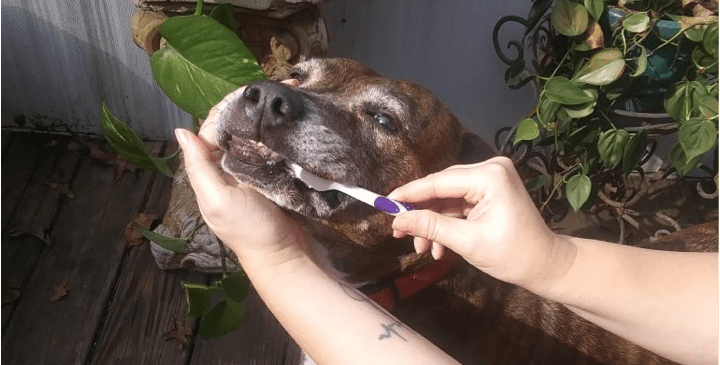12 Ways to Help Your Dog Live a Longer, Happier Life

Contents
Ask any pet owner what the hardest part of having a pet is and they’ll tell you it’s losing them. Our furry family members don’t live nearly long enough! The average lifespan for a giant breed is only eight to 10 years. Small dogs only live 10 to 15 years or maybe a little longer, with medium to large dogs falling somewhere in the middle. The good news is, there are plenty of things you can do to help you live a longer and happier life.
1. Provide Lots of Opportunities for Exercise

As humans, we’re told how important it is to get plenty of exercise throughout our entire lives. Well, the same thing applies to your dog, too! Just like people, getting regular exercise is essential for your dog’s mental and physical health. It also reduces their stress and anxiety levels while preventing boredom.
Dogs who are bored, stressed, or anxious are not happy dogs. When a dog is stressed or anxious, his physical health suffers. Chronic stress can actually weaken the immune system, slow wound healing, and speed up the aging process. Dogs who are stressed are more likely to experience digestive and allergy issues, too.
Clearly, providing your dog with lots of opportunities for exercise is super important for his health and happiness, which could also help them live a longer life. Since exercise good for you, too, the two of you should get out there and exercise together. Obviously, daily walks are super important, but it shouldn’t end there. Go hiking, play some fetch, or hit the lake for some swimming.
2. Feed a High-Quality Diet
You probably already guessed that the quality of your dog’s diet is important, too. In fact, it’s not only the quality of the food but also how much food you provide that affects their health. In general, cheap dog food kibble contains a lot of fillers and low-quality ingredients, so it should be avoided.
When choosing the best food for your dog, look for a high protein, low carbohydrate diet that is free of cheap fillers and by-products. You don’t have to make your dog’s food yourself, but you should feed the highest-quality dog food you can afford.
Feeding the right amount of food also important, so be sure to consult with your vet to see how much food your dog should be eating and be careful not to overdo the treats.
3. Maintain a Healthy Weight
Obesity is just as much of a problem for our furry friends as it is for us, and nearly half of the dogs in the US could stand to lose some weight. Even a little bit of extra weight can add stress to your dog’s bones and joints, worsening issues like hip dysplasia and arthritis.
Dogs who are very overweight will struggle when it’s hot out, and they won’t be as active as they should be. Not only that, but that extra weight increases their risk of serious problems like skin conditions, issues during surgery, difficulty breathing, heart issues, back issues, torn ligaments, and even an increase in certain cancers. These are all issues that can reduce your dog’s lifespan and quality of life significantly.
While it can be tempting to give your dog lots of yummy treats, all of those extra calories can be very harmful to his health. Try switching to healthier treat options like fruits or veggies so you can show him some love, without causing him to gain weight. Many dogs love bananas, frozen green beans, and even fresh carrots as a snack.
4. Take Care of His Teeth

We humans brush our teeth after every meal and get regular checkups at the dentist, too. Taking care of your dog’s teeth is just as important! While chewing does help to remove some of the tarter and plaque on your pup’s teeth, it’s not enough to keep them clean or keep his gums healthy.
Tooth decay and gum disease are a serious issue that can affect more than just your dog’s mouth. Allowing these issues to go unchecked can lead to chronic inflammation and pain in other parts of your dog’s body, as well as increase his risk of heart disease and other problems.
If your dog won’t let you brush his teeth every day, we recommend trying a pet toothpaste that doesn’t require brushing, like Petsmile, to keep his teeth and gums healthy. Most dogs should also have their teeth professionally cleaned at the vet once each year.
5. Exercise His Brain, Too
Bored dogs aren’t happy dogs. They’re often depressed, anxious, and even more prone to sickness. To exercise his brain, provide treat puzzle toys, teach him some new tricks, get involved in a sport you can do together, or sign up for an agility class. Preventing boredom also helps prevent cognitive decline as he gets older.
6. Regular Checkups are Important
When your dog is young, he should see the vet once a year for a checkup. As he gets older, he should have a checkup every six months. These checkups will give the vet a chance to spot any potential health problems before they become serious.
It’s important that your vet gets to know your dog because he will be more likely to notice any changes in his condition. Health problems are almost always easier to treat when they’re caught early, rather than waiting until there are obvious symptoms.
You should get in the habit of examining your dog carefully once a week at home, too. Look at his ears, eyes, teeth, paws, coat, and skin. Are there any new lumps, bumps, or sores? How about fleas or ticks? Are his ears red or dirty inside? Is his coat starting to matt or tangle? Address any issues right away, or make an appointment with the groomer or vet as needed.
7. Teach Your Dog Basic Obedience
Every dog should know how to walk on a leash, sit, stay, and especially come when called. Your dog should be well trained to come immediately when you call him because it could mean the difference between him turning around or running out in the road and being hit by a car.
Even dogs who are well trained should be on a leash anytime you’re in a public place or near a road. You never know what other animals, people, or vehicles are going to do and it’s best to keep your dog close to you in these situations.
8. Neuter or Spay Your Dog
Neutering or spaying your dog is crucial for preventing unwanted puppies, but there are other reasons to do it, too. Spaying a female dog helps to prevent potentially malignant breast tumors and uterine infections.
For male dogs, neutering decreases the risk of certain prostate issues and eliminates the risk of testicular cancer. In general, intact dogs are more likely to take off looking for a mate, which puts them at risk of getting lost or hit by a car.
9. Dogs are Social Animals
It’s important to remember that dogs in the wild live in packs. They are social creatures who are usually much happier when they have opportunities to socialize with other dogs and people. If your dog loves to socialize with other dogs, take him to the dog park regularly. If he prefers to hang out with people, take him to dog-friendly restaurants and stores where he can interact and get lots of attention. Even walks through the neighborhood can provide opportunities to socialize.
10. Provide Him with the Right Bed
Large dogs, especially giant breeds, are prone to joint issues and hip dysplasia. And, arthritis can become a problem for any dog as he gets older. Be sure to provide your dog with a comfortable place to sleep that will cushion his joints and keep him off the cold floor to minimize any joint discomfort.
11. Use Antibiotics and Other Prescription Medications Wisely
There’s no question that antibiotics and other prescription drugs are lifesaving medications that have an important role in animal and human medicine. Unfortunately, they’ve also been overprescribed for decades. Overusing antibiotics and other prescription medications can lead to common side effects like chronic ear infections, autoimmune issues, organ damage, and possibly even cancer.
If your vet recommends medication for your dog, be sure to ask lots of questions and do your own research. Make sure your dog’s condition really requires medication and it can’t be treated by providing good supportive care, proper nutrition, or supplements. Don’t be afraid to get a second opinion from a holistic veterinarian who can recommend natural alternatives to prescription medications.
12. Provide Lots of Love

Perhaps most important of all, provide your dog with lots of love. Dogs thrive on the love of their humans and their lives are so short compared to ours. Spend as much time as you can creating happy times and happy memories for both of you.
Final Thoughts
Our dogs become part of the family, and that’s the way it should be. But that also makes it especially hard when we lose them. Following these 12 tips can help your dog live a longer, happier life, and what pet parent wouldn’t want that?
